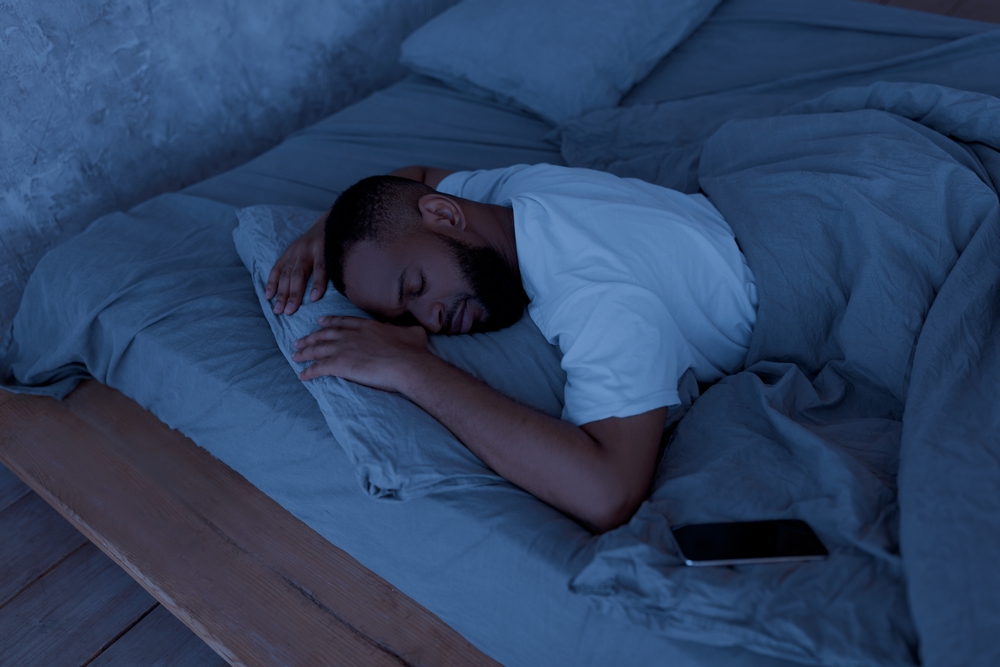Ever noticed how a solid night’s sleep in a completely dark room leaves you feeling refreshed in ways that sleeping with even tiny light sources just doesn’t? There’s actually some fascinating science behind why your brain absolutely loves the darkness when you’re catching z’s.
Think of your brain as a busy office building that needs regular cleaning. During the day, it’s all hustle and bustle with no time for the cleaning crew to do their thing. But at night, when everything shuts down, the real magic happens – and it turns out, this cleaning crew strongly prefers working in complete darkness.
Why your brain needs a good scrub
Throughout your day, your brain accumulates waste products – kind of like the trash and coffee cups that pile up in an office. These include proteins, metabolic byproducts and other cellular junk that needs to be cleared away. Left unchecked, these substances can interfere with brain function and potentially contribute to issues down the road.
This is where sleep comes in. When you drift off, your brain shifts into maintenance mode. But not just any sleep will do – the quality and environment of your sleep dramatically affect how well this cleanup process works.
Meet your brain’s janitor – the glymphatic system
The cleanup crew has a name – the glymphatic system. Think of it as your brain’s dedicated waste removal service. This network of specialized channels surrounds blood vessels and uses cerebrospinal fluid to flush away cellular waste.
The glymphatic system kicks into high gear during deep sleep, becoming nearly ten times more active than during waking hours. It’s like having a pressure washer for your brain that only turns on when you’re unconscious.
But here’s the kicker – darkness plays a crucial role in maximizing this process.
Why darkness is the ultimate brain detox enhancer
When you sleep in a truly dark environment, your body produces more melatonin, often called the sleep hormone. But melatonin does much more than just make you sleepy – it’s a powerful antioxidant and plays a key role in regulating the glymphatic system.
Exposure to light during sleep – even the soft glow from your charging phone or the LED from your TV standby – can suppress melatonin production. This doesn’t just make it harder to fall asleep, it actually impairs your brain’s ability to clean itself properly.
Complete darkness helps maintain proper melatonin levels throughout the night, which keeps the glymphatic system operating at peak efficiency. The result? A more thorough brain detox while you sleep.
What happens when your brain doesn’t get its darkness fix
Imagine never emptying your office trash can. Eventually, things get pretty gross, right? Similarly, when your brain can’t properly clear cellular waste, problems start to develop.
Consistently sleeping with light exposure can lead to a buildup of metabolic waste products in brain tissue. This accumulation can affect everything from your mood and memory to your cognitive function the next day. That’s why you might feel foggy or sluggish after sleeping in a room that wasn’t dark enough.
Over time, this impaired cleanup process may contribute to more serious issues. Research suggests that inefficient waste clearance from the brain might be linked to various cognitive and neurological challenges long-term.
Creating the perfect dark sleep sanctuary
Transforming your bedroom into a darkness paradise isn’t as simple as turning off the lights. Modern life has filled our sleeping spaces with tiny light sources that can interfere with your brain’s cleanup crew.
Start by identifying all the light culprits in your room: digital alarm clocks, charging indicators, cable boxes, night lights, and even light leaking in from street lamps or hallways.
Blackout curtains are a game-changer for blocking outside light. These heavy-duty window coverings create a cave-like environment that signals to your brain it’s time for serious cleaning.
For those electronic devices that can’t be turned off, cover their indicator lights with electrical tape or relocate them to another room when possible.
Beyond darkness – optimizing your sleep for brain detox
While darkness is crucial, other factors also influence how well your brain detoxifies during sleep.
Consistency matters enormously. Going to bed and waking up at roughly the same times helps synchronize your internal clock, which governs both sleep and the glymphatic system’s activity. Your brain loves predictability when it comes to maintenance schedules.
The position you sleep in also affects brain cleaning efficiency. Research suggests that sleeping on your side may be the most effective position for glymphatic clearance. This might explain why side sleeping is the most common position across human cultures.
Hydration plays a role too. The glymphatic system uses fluid to wash away waste, so being properly hydrated supports this process. Just be sure to finish drinking well before bedtime to avoid disrupting your sleep with bathroom trips.
The temperature factor in brain cleaning
Your brain’s cleaning crew has temperature preferences too. Slightly cooler sleeping environments tend to enhance deep sleep, the stage when most brain detoxification occurs.
Aim for a bedroom temperature between 60-67 degrees Fahrenheit for optimal conditions. This temperature range helps your body maintain its natural drop in core temperature that happens during sleep, which in turn supports the glymphatic system’s activity.
Overheating during sleep can disrupt the depth and quality of your rest, reducing the efficiency of waste clearance from your brain.
The full darkness challenge
If you’ve never experienced truly dark sleep, try this experiment for a week: Make your bedroom as dark as humanly possible. Cover or remove all light sources, install blackout curtains, and even consider a comfortable sleep mask if needed.
After adjusting to this new environment for a few nights, you’ll likely notice differences in how refreshed you feel in the morning. Many people report clearer thinking, improved mood, and more consistent energy throughout the day when sleeping in complete darkness.
Your brain’s maintenance crew will thank you for providing optimal working conditions, and you’ll reap the benefits of their more efficient cleaning services each night. In the battle for better brain health, sometimes darkness truly is your brightest option.
















